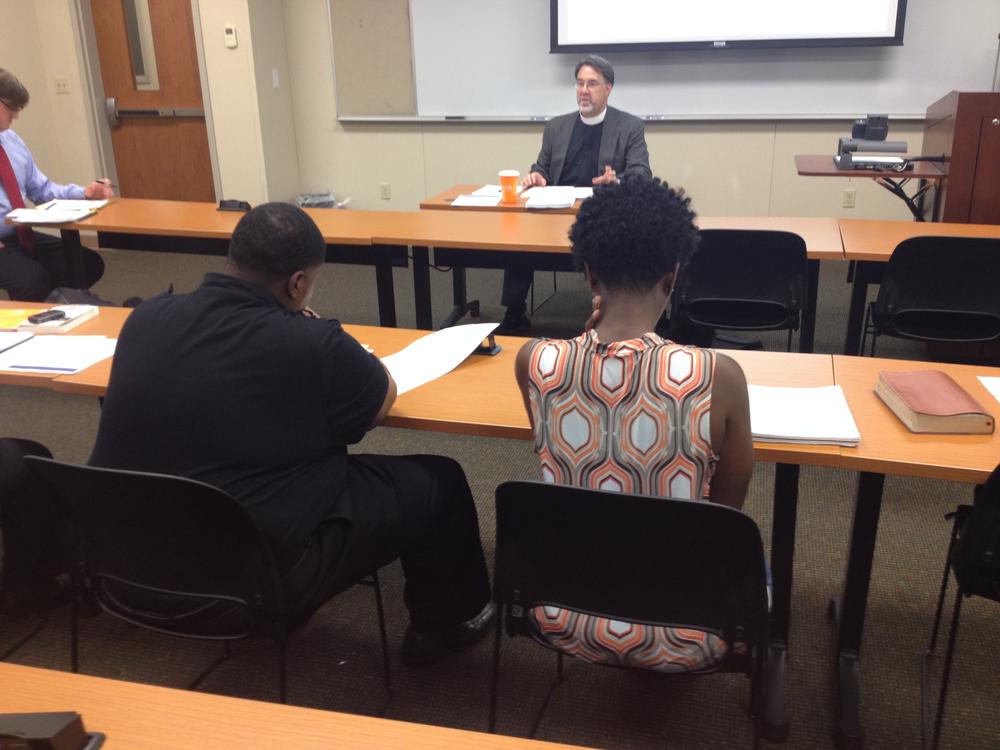
Section Branding
Header Content
Teaching Theology For Profit: The Next Wave Of Religious Education?
Primary Content

You might not think of a for-profit college as a place to enter a profession that’s often associated with vows of poverty.
Most of the marketing for these schools focuses on getting a practical degree – like business or medical assisting.
But one for-profit university based in Savannah is venturing into new territory – offering theology degrees to aspiring clergy members.
On a hot summer Saturday in Savannah, a small group of students sit in an air-conditioned classroom. It’s day one of the Doctor of Ministry program at South University.
Dr. Rob Redman is the Dean of the new College of Theology at South University.
This pilot class of four students includes Gregory Kinsey. He says he’s been a pastor in the African Methodist Episcopal Church for 15 years – and that’s not his only job.
“I’m bivocational,” said Kinsey. “I do work in a school system as an administrator, and I just wanted to enhance my ministry.”
Because the program is largely online, Kinsey can keep working, while occasionally making the 90-minute trip to Savannah from Green Pond, South Carolina.
And Rob Redman says because his program is part of a for-profit school, it operates more efficiently, with fewer faculty and more practical classes. Students include work experience in their coursework, and take classes like leadership and counseling, instead of Greek and Hebrew.
Unlike traditional seminaries, Redman says the program doesn’t depend on donors.
“There’s something kind of wrong, broken in theological education,” said Redman. “So it seems like now is a good time to try out a different model. And I think the for-profit model points the way forward.”
The doctor of ministry program launches nationally this fall at a handful of South University campuses. Redman says he’s still signing up students, and he’s not yet sure how many will enroll. He admits it’s too soon to know if it will make money. At 50-thousand dollars, the cost is comparable to traditional seminaries.
That’s Daniel Aleshire is the executive director of the Association of Theological Schools in the United States and Canada. He says since the program isn’t tied to any particular church, students may struggle to find religious work after graduation.
“I don’t think there’s enough money for a whole lot of providers to be able to do it and make money at it.”
But Gregory Kinsey says his church is backing his choice of schools – and he says he likes the fact that South University draws students from a range of Christian denominations.
“And I also like the fact that it’s not per se church affiliated, you’re not inundated with a church’s theology or doctrine.”
Daniel Aleshire acknowledges that many of the traditional seminaries his group represents are struggling with funding, as church attendance declines and donors recover from the recession.
“There may be some niche programs and markets that might be able to work that out,” said Aleshire. “As long as there aren’t too many competitors.”
South University administrators hope the theology program will take off in several new markets. It launches online next month, and at campuses in five more cities in October.
Tags: theology, religion
